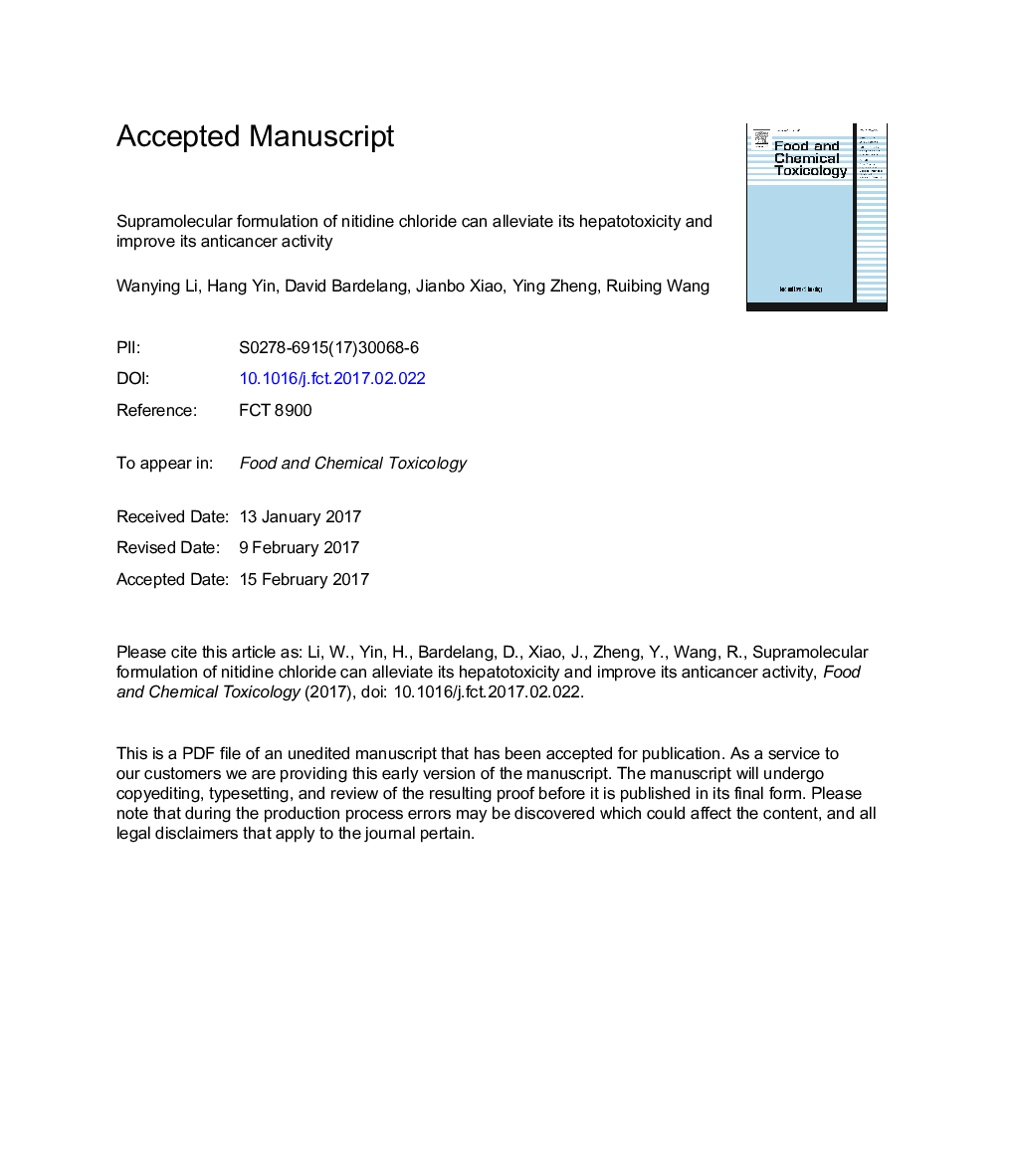| Article ID | Journal | Published Year | Pages | File Type |
|---|---|---|---|---|
| 8548873 | Food and Chemical Toxicology | 2017 | 23 Pages |
Abstract
Nitidine chloride (NC) has demonstrated promising anticancer activity. However, NC has also shown non-specific toxicity in various healthy organs such as the liver. In this study, we aimed to develop a supramolecular formulation of NC and investigate the associated benefits of such a supramolecular formulation on modulating its inherent hepatotoxicity and anticancer activity. The formation of NC-cucurbit[7]uil (NC@CB[7]) complexes was characterized by 1H nuclear magnetic resonance and Fourier transform infrared spectroscopy, differential scanning calorimetry and powder X-ray diffraction analysis. As a consequence of the supramolecular complexation, NC@CB[7] showed significantly lower toxicity (IC50: 6.87 ± 0.80 μM) on a liver cell line (LO2), and higher cytotoxicity (IC50: 2.94 ± 0.15 μM) on a breast cancer cell line (MCF-7), when compared with the free drug (IC50 of 3.48 ± 0.49 μM and 7.28 ± 0.36 μM, on these two cell lines, respectively). Investigation of cellular uptakes revealed that CB[7]'s capability in modulating the toxicity/activity of NC was mainly attributed to the drug's different cellular uptake behaviors that were influenced by CB[7]'s complexation. Taken together, we have demonstrated that supramolecular formulation of NC by CB[7] significantly alleviated its hepatotoxicity and improved its anticancer activity in vitro.
Related Topics
Life Sciences
Agricultural and Biological Sciences
Food Science
Authors
Wanying Li, Hang Yin, David Bardelang, Jianbo Xiao, Ying Zheng, Ruibing Wang,
